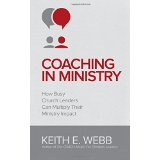Every year, usually in February, I teach a course at Richmond Graduate University in Atlanta. Currently titled “Models of Relating Christianity and Counseling,” the course has two textbooks including Practicing Greatness published by Reggie McNeil back in 2006. The author is not a counselor and the book never mentions what we once called “the integration of psychology and theology.” Instead, McNeil writes that aspiring to greatness is an admirable goal, consistent with humility, and worthy for leaders in every “sector of society,” presumably including mental health professions. With a clear Christian emphasis, McNeil discusses the disciplines of self-awareness, self-management, self-development, mission, decision-making, belonging, and aloneness. My class is built on the assumption that who you are and who you become as a spiritual leader is more important than what you do to combine faith and practice.
 A more contemporary book (which is not a textbook for the course I’m teaching) is The School of Greatness by Lewis Howes, a “two-sport all-American athlete and former professional football player.” When a career-ending injury left Howes out of work and sleeping on his sister’s couch he knew that gridiron greatness was impossible. Eventually he rose above his disappointment and became an Olympic gold-mentalist and very successful businessman who received White House recognition as one of the top 100 entrepreneurs in the country under 30. This success was a result of hard work, determination, the development of specific habits, and a concentrated effort to learn from “masters of greatness,” including many whom Howes got to know personally.
A more contemporary book (which is not a textbook for the course I’m teaching) is The School of Greatness by Lewis Howes, a “two-sport all-American athlete and former professional football player.” When a career-ending injury left Howes out of work and sleeping on his sister’s couch he knew that gridiron greatness was impossible. Eventually he rose above his disappointment and became an Olympic gold-mentalist and very successful businessman who received White House recognition as one of the top 100 entrepreneurs in the country under 30. This success was a result of hard work, determination, the development of specific habits, and a concentrated effort to learn from “masters of greatness,” including many whom Howes got to know personally.
For Christmas I gave copies of The School of Greatness to several friends who are facing career decisions. The author does not write from a Christian perspective but he gives a number of practical guidelines, some of which are well accepted but easily forgotten. Illustrated with captivating stories and personal discoveries, the chapters focus on issues such as creating a vision, turning adversity into advantage, cultivating a champion’s mindset, managing your body, practicing positive habits, and living a life of service.
This is a self-help book, “a real-world guide to living bigger, loving deeper, and leaving a legacy.” Self-help books are not all bad. This one is thought provoking, written by a successful young guy who has good insights for readers of any age: maybe including your clients, your parishioners, or even you. Please leave a comment.
 gh it’s way outdated. The publisher was not interested when I suggested an updated 40th anniversary edition but in many ways my focus has shifted from people helping to people building. This is a focus on walking with those who are going through transitions, decision-making and other life events that are less in need of counseling and better served by friends, encouragers, mentors and trained coaches.
gh it’s way outdated. The publisher was not interested when I suggested an updated 40th anniversary edition but in many ways my focus has shifted from people helping to people building. This is a focus on walking with those who are going through transitions, decision-making and other life events that are less in need of counseling and better served by friends, encouragers, mentors and trained coaches.








 me, based on both experience and research, setting a new paradigm for leadership in the twenty-first century. Such is the new book by General Stanley McChrystal, former commander of all American and coalition forces in Afghanistan. Co-authored with two former U.S Navy SEAL officers and a very articulate scholar currently at Cambridge University, this book describes how old models of leadership, popular and successful for centuries, have been forced to change in an era of instant Internet communication and terrorist tactics. The book describes how the military has needed to change but demonstrates how these changes must apply equally to corporations, professions like medicine, organizations and anyplace else where leadership occurs.
me, based on both experience and research, setting a new paradigm for leadership in the twenty-first century. Such is the new book by General Stanley McChrystal, former commander of all American and coalition forces in Afghanistan. Co-authored with two former U.S Navy SEAL officers and a very articulate scholar currently at Cambridge University, this book describes how old models of leadership, popular and successful for centuries, have been forced to change in an era of instant Internet communication and terrorist tactics. The book describes how the military has needed to change but demonstrates how these changes must apply equally to corporations, professions like medicine, organizations and anyplace else where leadership occurs.